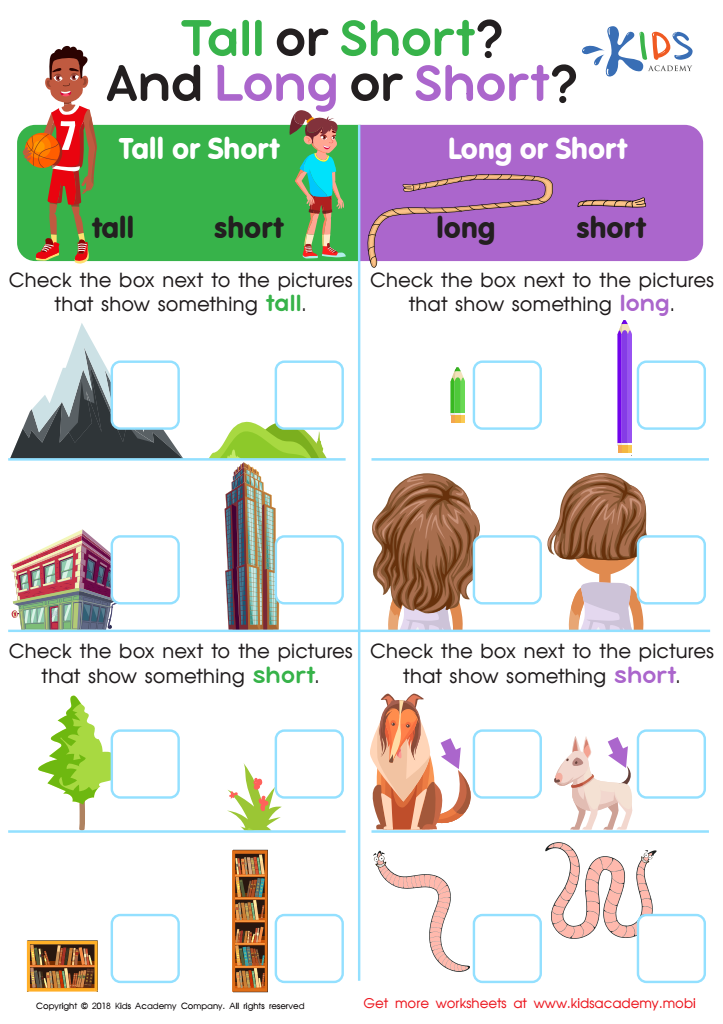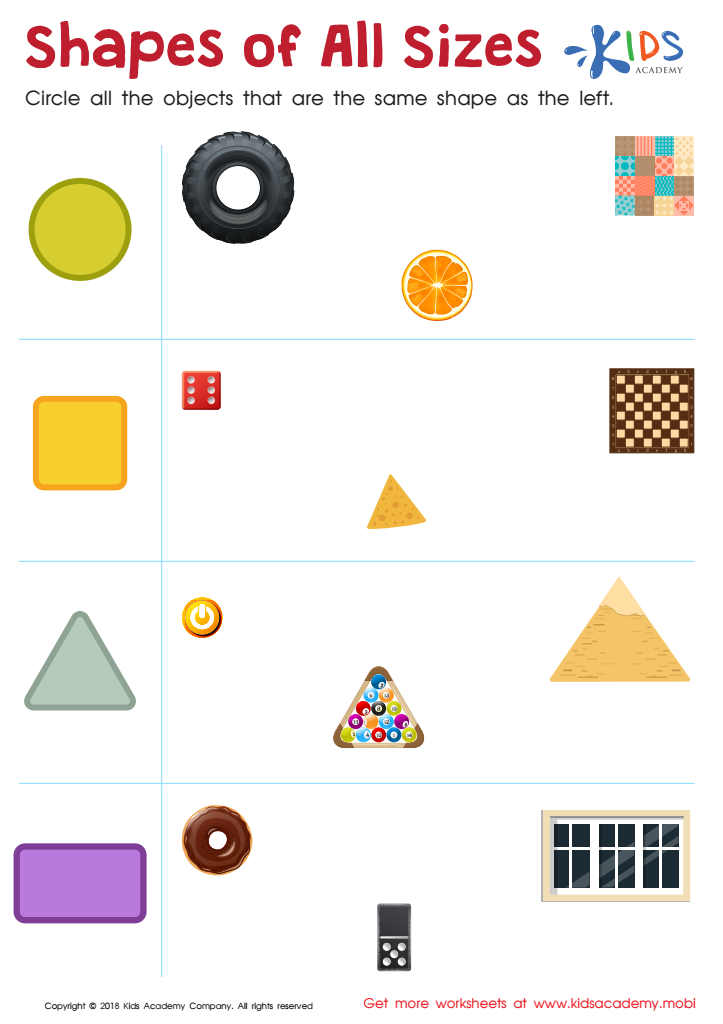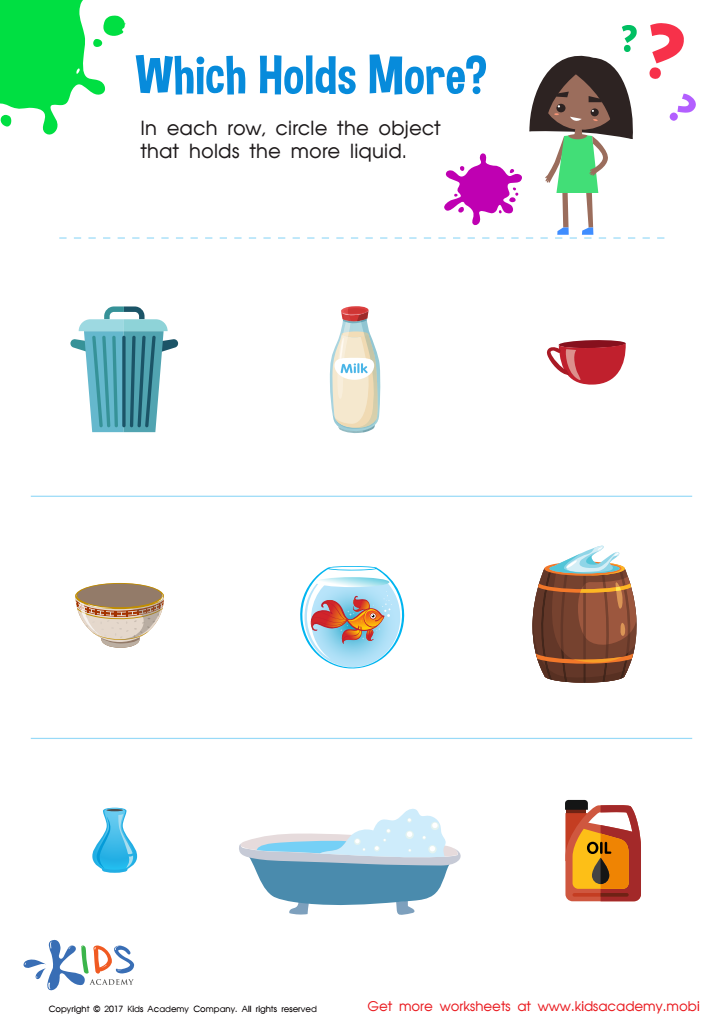Basic measurement concepts Normal Math Worksheets for Ages 4-8
3 filtered results
-
From - To
Welcome to our "Basic Measurement Concepts Math Worksheets" page, designed specifically for children ages 4-8! These engaging worksheets introduce young learners to essential measurement skills, making the learning process fun and interactive. Your child will explore concepts such as length, weight, and volume through colorful illustrations and relatable examples. Each worksheet reinforces foundational math skills while encouraging critical thinking and problem-solving. Perfect for at-home learning or classroom use, our worksheets provide a versatile resource to help kids master basic measurement in a playful way. Download and inspire your child's love for math today!


Tall or Short and Long or Short? Worksheet


Shapes of All Sizes Worksheet


Which Holds More: Capacity Worksheet
Basic measurement concepts are essential for young learners aged 4-8 as they serve as foundational skills that extend beyond mathematics. Understanding measurement helps children make sense of the world around them in tangible ways. When parents and teachers introduce concepts such as length, weight, capacity, and time using everyday objects and experiences, they enable children to develop critical thinking and problem-solving skills.
At this age, children are naturally curious and eager to explore, making it an ideal time to introduce measurement. Engaging them in hands-on activities—like measuring ingredients while cooking or estimating the height of classmates—encourages active participation and reinforces learning in a fun and meaningful way. Moreover, these concepts support language development, as children deepen their vocabulary related to size, quantity, and duration.
Additionally, early mastery of basic measurement concepts sets the stage for future academic success in more complex math topics. It fosters a positive attitude towards math, helping to combat anxiety around the subject as they progress through school. By caring about and fostering measurement skills at an early age, parents and teachers equip children with the tools they need for everyday problem-solving and a lifetime of learning.
 Assign to My Students
Assign to My Students









.jpg)











